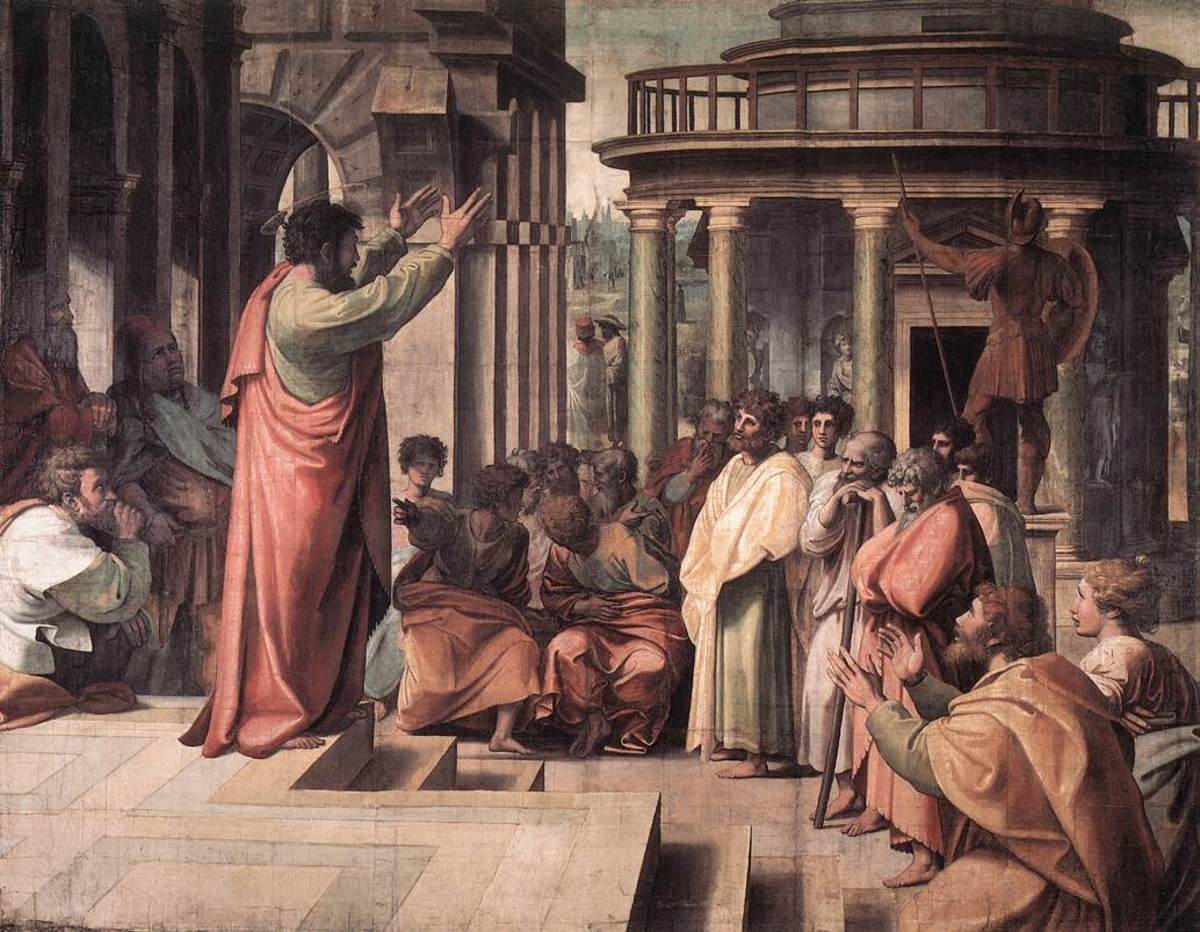The Beatitudes: Blessed are the Merciful

A Story Of Mercy - An Incident During the Korean War
A Communist officer once ordered the execution of Christian civilians. Finding that one of the civilians ran an orphanage renowned for its good work, the officer spares his life. Cruelly, he does not spare the man's son, and the boy is executed in the presence of his father.
Later, when the tide of events changed, this same officer was captured, tried, and condemned to death for war crimes. Yet before the sentence can be enacted, the Christian father pleads for the officers life. The request was granted. The father then takes the officer into his own home, for the officer had no one.
Upon first reading, I couldn't but wonder at the magnitude of the father's mercy.
Surely a part of him was repulsed by the officer, just wanting him dead or, at the very least, having nothing more to do with him. Simply let justice prevail, let him die. I know I would have been tempted to think that way.
It's so Easy to be Critical
Have you ever found another person repulsive? Such that you didn't really care for them, nor what happened to them; because whatever happened to them was likely justly merited.
I have.
Saying that, the person I know best is me. My self-knowledge has often resulted in repulsion. Those thoughts I entertain that are ungodly, even perverse; those words I speak that are careless, even harmful; those things I do that are shameful. At times I have loathed myself.
I think we can all relate to that at some level. One does not have to live long to realise that we are blemished.
Repulsion
Do you find it easier to be critical of
Is God Allowed to be Critical of Us?
When we stop to consider God's view of us, our behaviour at least, we find he also is repulsed; offended by what he sees in his creation.
Just as that Korean father was most likely repulsed by the murderer of his son, so God is repulsed by sin.
And yet, Lamentations 3:22-23 says;
"It is by the lord's mercy that we are not consumed, because his compassion does not fail. His mercy is new every morning: great is his faithfulness."
How much more-so as sinners, desperately reliant on that mercy, do we need to share in this attitude of God. As desperately as we need healing, we need this attitude, the attitude of forgiveness that looks upon all men and says,
"As I need mercy, I understand you need it also. I will seek to help you to achieve what I am seeking for myself. I will open my heart to you, as I desire to you be open to me. I will forgive you as I desire to be forgiven, and I will cease judging you as I desire to escape from judgement."
Les Miserables Mercy
Maybe you have seen the movie Les Mis, or read Victor Hugo's novel.
It's an intriguing story. In particular the themes of mercy and justice juxtaposed against one another, revealing the flaw in seeing mercy and justice existing alone on opposite poles, the view of needing one or the other, but not both. Even Christians often consider ourselves as having escaped justice by being shown mercy.
Yet, maybe that is an incomplete way of looking at the subject; possibly even harmful to our ongoing walk with God and others in regards the topic of mercy.
Romans 3:36 speaks of a God who is “...just (i.e.:he is right and fair) and the justifier of the one who has faith in Jesus.”
This passage doesn't tell us we have escaped God's justice, rather that He makes us just. We have been made just (morally right). Justified. JUST-IF-I'D never been unjust.
Though it is true that there is a retributive justice that says, 'this line, once crossed, demands this payment.' There is a big difference between exacting payment from the guilty, and sacrificially paying that price on their behalf. MERCY.
God is such a one who, though angered by sin aware of it's cost, says to us, “DO NOT even attempt to pay this yourself, I have paid it for you.”
God does not view justice in isolation from mercy, rather he views mercy as a means to restore justice ~or rightness~ into our lives.
And this is the healing attitude Jesus calls us to adopt. To see mercy as a means of restoring rightness into others lives. He promises, in so doing, a growing measure of it in our own lives.
Retribution seeks to restore justice by demanding the payment from the guilty, regardless of whether they can afford it.
Mercy seeks to restore justice, by paying what's demanded on the guilty ones behalf, regardless of what it may cost us.
Though it is true that there is a retributive justice that says, 'this line, once crossed, demands this payment.' There is a big difference between exacting payment from the guilty, and sacrificially paying that price on their behalf.

Valjean's Desperate Need for Mercy
For the thief Valjean, in the story of Les Miserables, retributive justice was something that had doggedly pursued him for years, finally reducing him to a pitiful existence. Then, one day, caught red-handed with silverware that he'd stolen, he is dragged away to be condemned. However, his victim, a priest, does not seek retribution, but instead seeks a way to restore rightness into this man's life, that is, to elevate him to a position above judgement. To lift him up from where he has fallen. He does so by telling the police that the silverware ~the priests only worldly treasure~ is actually his gift to the thief. The thief owns it. By that single act of mercy, the thief’s crime evaporates.
I am reminded so much of what God has done through Christ. We, guilty, caught, condemned and waiting retribution, found ourselves at the feet of a God who says to us in the hearing of our accuser, “Here, your iniquity I have given to my son, it no longer belongs to you.” Our crime evaporates.
Such is the impact of the priests mercy on a man who had seen little to none of it in his life, that his heart and life begin to change. Wherein he walks a path in which he also begins dealing with others from a position of mercy, not judgement, with a desire to restore them to rightness, not punish them in retribution.

Javert's Merciless Justice
However, the thief has his nemesis in the story. A policeman by the name of Javert. This officer of the law pursues the thief mercilessly, for crimes committed in his past. For the policeman, justice demands payment from the guilty. He has adopted a retribution-only approach to justice that has no room for mercies, and does not believe people can be anything but the cloth they are cut from. Once a thief, always a thief.
In the story, most will connect with the thief but be repulsed by the policeman.
The unmerciful are repulsive. Yet, in reality, we may be guilty of Javert's unmerciful shortcomings. Maybe not so patently as Javert, but we may operate closer to a position of retribution than we do mercy in our dealings with others.
Part of the reason for that, is that we fail to really appreciate and believe the extent of Gods mercy toward us on a daily basis. Wherein God says to us at every sin, at every failure, “don't attempt to pay me back for that, my grace is sufficient.”
Because we fail to rest in that grace, because we keep treating our sin and failure as a debt owed, it becomes next to impossible for us to exercise Christlike mercy to others. Because, to the degree that we believe God is vindictive toward us, we will be vindictive toward those who offend us.
Psalm 130:3-4
If you, Lord, should mark iniquities, O Lord, who could stand? But there is forgiveness with you....
Another reason we tend to operate from shallow retribution rather than depths of mercy is that, like Valjean the thief and Javert the policeman, we are all victims of life’s injustices. Our victim-hood causes us to perpetuate further injustice.
I remember playing with others as a child. When one child behaved selfishly or spitefully, it was good enough reason to behave the same back to them. There is an aspect to us that wants to retaliate in equal or greater measure.

Life's Injustice Makes Mercy Hard, but Necessary
Unfortunately, hurt enough times, our retaliative responses become less targeted and we begin blanket bombing any who step too close. Even our loved ones. The times I've come home after a stressful day and taken it out on the family. Go figure.
We are all victims of life’s injustices. And our victim-hood tempts us to perpetuate further injustice.
But in accepting this common truth about ourselves and others, we can become better able to see past the offences committed. Past those things that merit retribution, to those things that remind us of our own need for mercy. To those underlying fears, doubts and hurts that we all experience, that make resisting sinful behaviour so much more difficult. This is the mercy exercised toward us by God.
Ephesians 2:45
But God, who is rich in mercy, out of the great love which he loved us, even when we were dead through our trespasses, made us alive together with Christ (by grace you have been saved).
The Fear of Being Merciful
Another reason we fail to operate from a position of mercy is fear, a fear of being hurt. Causing us to build walls that keep others at a distance & keep risky decisions ~like choosing to exercise mercy~ at a safe arms length.
After all, if I can keep everyone at a safe distance, then there's less chance of being hurt or let-down or having demands made of me. However, it also means we will only relate to and judge others at a surface level. However, then, mercy, which requires seeing past the facade and pretence, becomes impossible.
You see, retributive justice is a lot easier to fulfill than a justice which is personally invested in the well-being of another person. While Javert’s (the policeman’s) justice demands no more than making sure people pay back their debts and avoid deliberately violating other peoples’ rights, Valjean’s (the converted thief) justice demands that we pro-actively seek and address the unfair misfortunes of others, regardless of who is to blame.
The world operates on the retributive principle. You pat my back, I'll pat yours. Cross me, I can then cross you back. But this Retributive logic becomes a primary source of sin in peoples lives, only encouraging a cycle of hurt, even causing us to do hurtful things to other people as an indirect response to a hurt we received from someone else.
By way of example, a man I know purchased a classic car from an offshore private seller. I cost him $20K. This car he aimed to restore. On its arrival, he removed the panels to discover the chassis riddled with rust; to such an extent the car was worthless & non-salvageable. He was upset & angry at the previous owner for so blatantly deceiving him & passing on the problem at a profit.
Sadly, though hurt and feeling unjustly treated, the man acted on the retributive principle. 'Others hurt me', he thought, 'I can hurt others'. What did he do? He put all the panels back on the car and sold it to another oblivious car restorer.
© 2013 Richard Parr








